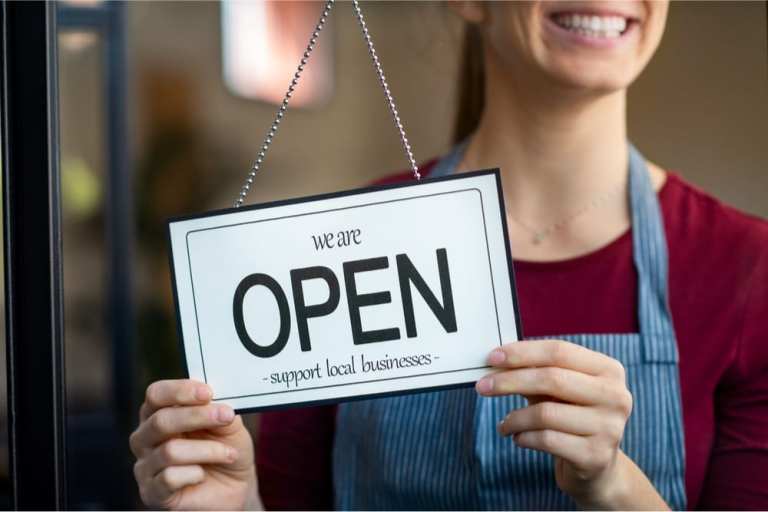Reopening Faces Its Next Challenge: Retail Marketing

There’s no podcast, textbook or self-help guru that has a playbook on marketing a retail business after a pandemic. But while reopening is the order of the day, re-marketing will be the order of 2020 as retailers try to transcend simple survival and get back on their feet.
One of the leading thinkers in retail branding and marketing is Brand Keys Founder and President Robert Passikoff. Each year his company ranks more than a thousand brands based on consumer perception and loyalty. For Passikoff, retailing is about two things: engagement and expectations. His philosophy, and the one that informs his company’s signature Customer Loyalty Engagement Index, is that brands can only drive loyalty if they find consistent ways to create positive experiences. That equals engagement. Engagement will also, to an extent, create expectations. Sustainability, for example, is a current driver of engagement, and consumers expect brands to commit to environmental sustainability. The ability of a brand to create engagement and then meet expectations directly correlates to brand loyalty. No surprise then that UPS, Netflix, Home Depot and Dick’s Sporting Goods led the most recent cut in the Brand Keys Customer Loyalty Engagement Index.
In the aftermath of the coronavirus pandemic, he has allowed a top layer to this formula: mitigation. There will be standard elements to retail marketing that will mitigate consumer concerns about in-person shopping such as PPE, consistent in-store cleaning and maximum occupancy rules. So his formula is mitigation first, but the same engagement and expectation factors follow closely.
Social media and advertising still have a big part to play in the post-pandemic marketing landscape, if not a more important role to play.
“Consumers talk to themselves and each other before they talk to brands,” he says. “I’ve been saying this for two months. There will be changes in consumer behavior when this is all over and the brands that stay in touch with those changes have the best chance of being relevant. In terms of retail, I’ll give you an example and I’ll make you a bet. When you and your family talk about what they want to do when this is over, I seriously doubt that they want to go to Macy’s and buy something. But I’ll bet you that you’ve talked about going out to restaurant for a relaxing meal.”
He also believes that the shift to digital will change marketing tactics. Consumers, he says, will re-prioritize the brands they buy from and they will cherish access to those brands online.
“There will be a resettling and a recalibration of what people will expect,” he says. “And retailers need to be comfortable and realistic about what they can deliver. Retail is not a stagnant thing. Expectations change.”
The changes in expectations that Passikoff saw before the pandemic will be the ones retailers should consider amplifying after it: experiential retailing within larger physical spaces and sustainable business practices.
How to communicate that? Passikoff is not a fan of the “we’re all in this together” messaging that some brands have adopted. He likes what D2C brand DHVANI has done by blasting its new message from three billboards in Times Square promoting its move toward manufacturing and donating medical face masks.
Experiential retailing and authentic messaging are also at the top of the list for Strategic Horizons President Joe Pine, co-author of “The Experience Economy.” Experience can be best enjoyed in person, he says, but also extends to marketing for online commerce.
“In the midst of this coronacrisis, it is still true that the experience is the marketing,” he says. “That is, the best way to generate demand for your offerings is with an experience so engaging that customers can’t help but spend time with you, give their attention to you, and buy your offerings as a result. People still value and desire such marketing experiences; they’re just shifting from public to familial, from out there to in here, from physical to digital. You must shift with them to engage your customers in digital experiences that truly engage, are memorable, and lead to demand generation.”
Pine encourages retailers to first, be human. He was inspired by Katrine Thamdrup and Mathias Birkvad, strategic planners at ad agency & Co in Denmark, who wrote that in this first, emergency phase companies should “demonstrate citizenship,” meaning to act simply in the most human way possible — with empathy, for the greater good, with customers, employees, communities, nations and the world.
“That’s what so many experience stagers are doing via the quarantine-driven digital events mentioned above,” Pine says. “They aren’t necessarily trying to monetize all that activity right now when people just need to be socially present while physically distant (‘social distancing’ being a great misnomer). If any of these new formats is of lasting value, then deriving economic value will come soon enough.”